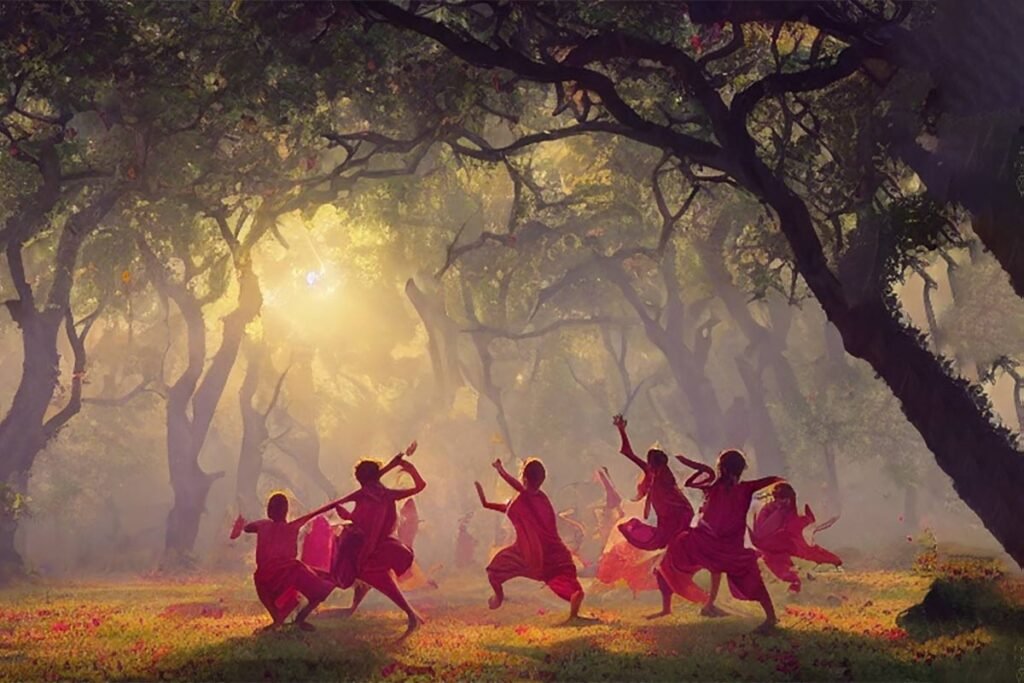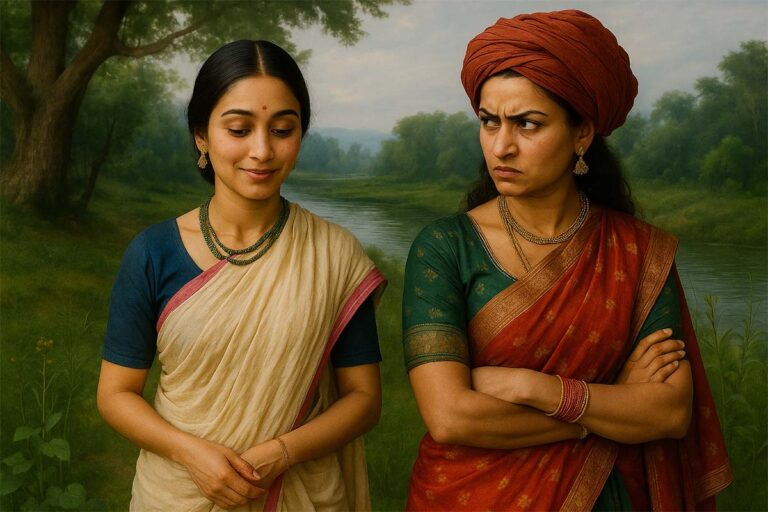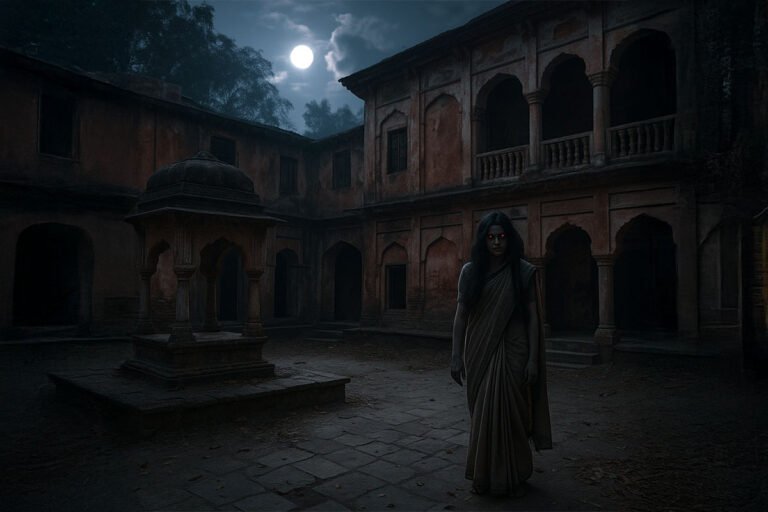Once upon a time, in the lush, enchanting region of Odisha, lived a tribe of simple, yet jovial villagers. They believed in the principles of togetherness, brotherhood, and hard work. Among these villagers were seven brothers, known for their exceptional strength and unity.
The tribe honoured various deities, but their supreme veneration was for Karamsani – the divine spirit of wealth, youth, and vitality. ‘The Karam Festival’ was held every year in her honour, a celebration filled with singing, dancing, feasting, and the ritualistic offering of the Karam tree.
However, the seven brothers, despite their virtues, were too consumed by their daily pursuits. They allowed their work to take precedence over their religious practices and started neglecting the worship of Karamsani. This act of negligence did not go unnoticed.
One year, during the Karam festival, when the entire village was celebrating, dancing, and rejoicing around the Karam tree, the seven brothers were missing. They had decided to spend the night fishing and hunting in the forest. The celebration seemed pale without the presence of the seven brothers who were always at the heart of every festivity.
Karamsani, witnessing this insult, decided to teach them a lesson. She wasn’t vengeful, but felt that they needed to understand the true value of the Karam tree, their faith in Karamsani, and the respect that was due to her.
The very next day, the seven brothers woke up to find their once plentiful nets empty, their traps devoid of any game, and their robust health now faltering. With each passing day, their strength waned, their wealth diminished, and their unity seemed to falter. Their robust fields withered, their cattle fell sick, and their once muscular bodies now looked haggard.
Finally, one day, the eldest brother, the strongest among them, collapsed out of weakness. They didn’t understand the sudden run of bad luck and failing health. They sought the advice of the village elder, a wise old man known for his sagacity and insight.
The elder, after listening to the brothers’ ordeal, understood the situation. He explained, “Brothers, you have neglected the worship of Karamsani, the deity of wealth and youth. She is displeased with you for ignoring the Karam festival. The Karam tree symbolizes prosperity, and your neglect has invoked the wrath of Karamsani.”
The brothers were taken aback. In their relentless pursuit of work and wealth, they had forgotten to respect and honor the divine source that provided for them. They felt deep remorse for their actions. The elder advised them to seek forgiveness from Karamsani and to make amends by worshipping her with devotion and sincerity.
The brothers did as suggested. They began the process of repentance by erecting a new Karam tree. They sang songs in honor of Karamsani, made offerings, and danced around the tree, invoking Karamsani’s blessings and forgiveness. They promised never to neglect the Karam festival and the worship of Karamsani again.
Moved by their sincere remorse and their newfound respect for her, Karamsani decided to forgive them. Soon, their health returned, their nets were once again filled with fish, and their fields blossomed. The brothers were filled with gratitude. They had not only regained their wealth and strength but had also learned an invaluable lesson.
From that day forward, the seven brothers became the most devout worshippers of Karamsani, and the story of their transformation spread across the land, reminding everyone of the importance of faith and reverence for the divine.








